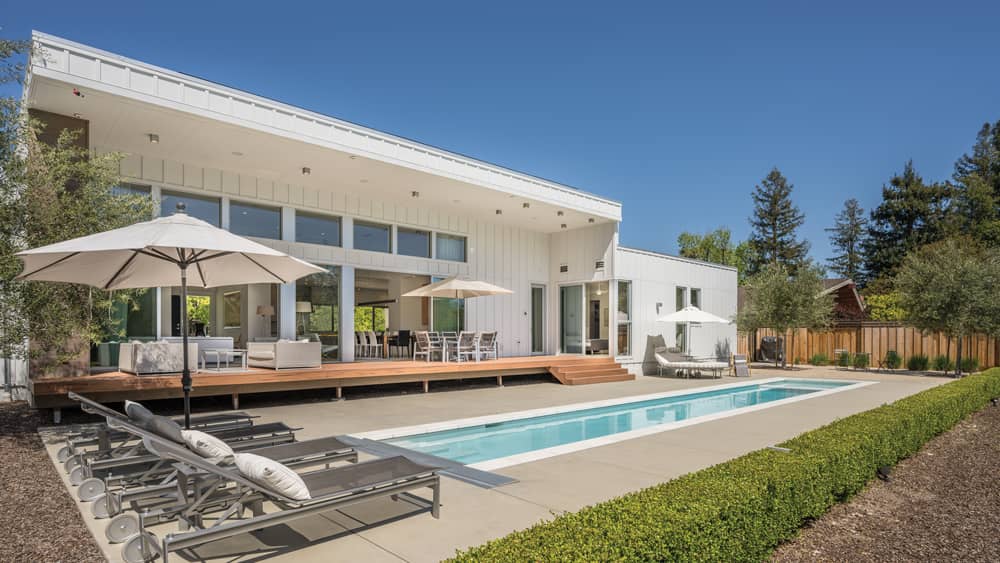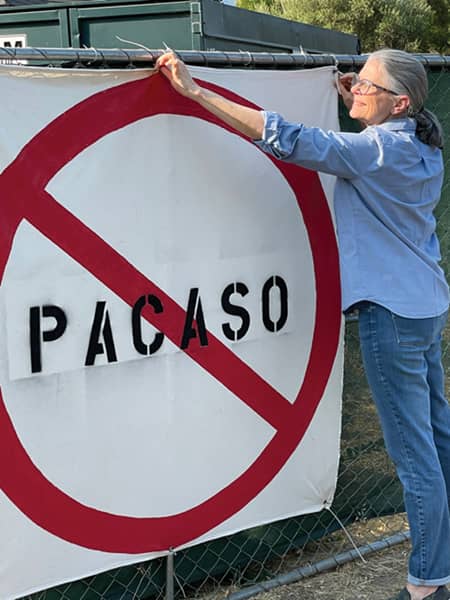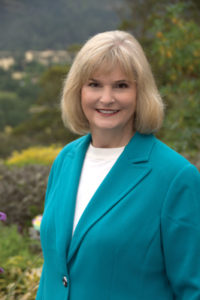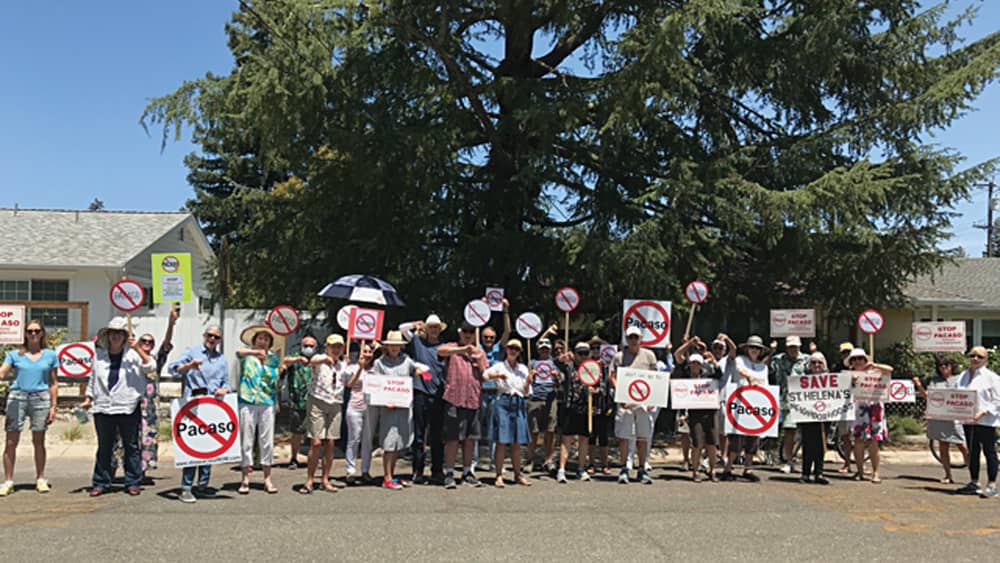
As the poet Robert Frost once wrote, “Home is the place where, when you have to go there, they have to let you in.”
A “second home” is a home away from home. Perhaps it’s a weekend place in the country, a break for city commuters. Or, maybe it’s a vacation home on the beach, that you enjoy when you can, and rent out the rest of the time. Second homes have been around a long time and it’s a part of North Bay living. You have one, you use it when you want, rent it if you need––and you abide by local ordinances that determine what kind of use is allowable and where. Simple.
Consider though, if your primary home is in a small, established neighborhood in a pretty little Wine Country town––the kind of town where you and your neighbors share responsibility for the community. But what if the house next door to you is bought and remodeled by a company that advertises it as, “The modern way to own a second home.” On its website, Pacaso says they are “democratizing second home ownership.” However, the organization’s first purchase, a property on Valley View Street, drew attention by so many loud parties going late into the night, with so many complaints and calls to police, that protests with placards began to form and the city took notice. Signs went up all over the neighborhood. What is going on?
It may have started sometime after 2008, when two people in San Francisco dreamed up a way to cover their rent by opening their loft to travelers. Then, Airbnbs, their innovative model, popped up all over desirable residential areas. Neighbors protested the traffic, the party noise and the constant coming and going from travelers. Municipalities responded and zoning ordinances were put in place. Where allowed, Airbnbs continued to thrive, with their owners going on to multi-billion-dollar profits, and neighbors relaxing, to the extent that zoning ordinances were observed.
Pacaso
Earlier this year, Pacaso began purchasing properties in cozy small-town Wine Country neighborhoods in Napa and Sonoma counties and began redesigning them as “fractionally-owned” second homes.
The name was inspired by the famous painter, who in the early part of the 20th century, turned the art world upside down. “We are inspired by Pablo Picasso’s revolutionary thinking, the way he challenged norms,” writes co-founder Austin Allison, on the Pacaso website. As is widely reported, Allison, along with co-founder Spencer Rascoff, having raised financing valued at $1 billion in less than one year in business, are moving fast to achieve their mission of totally redefining the business of second-home ownership.
However, there are a growing number of St. Helena residents who are alarmed. Clare Barr, a 25-year resident, is one of them. “Pacaso is specifically affecting the neighborhoods in a really rapid and in a very bad way,” she says. Pacaso currently has three homes operating in St. Helena proper. Two more were planned, but they recently sold one privately to a single family. Residents celebrated this as a sign that their opposition is having an effect. The fate of the fifth Pacaso purchase, still under construction, remains uncertain. “They’re targeting a certain kind of mid-level home,” she says. “Right in town. The kind of home that a family, or even a young couple, if they work really hard, could come in and live in––and we need that.” As she describes it, and housing statistics support, St. Helena is vulnerable. “The town has been in a tippy situation, really, for the last 10 years,” says Barr. ”It’s quite different than it was 20 years ago––with more wineries, more traffic and more people commuting.” Already upwards of nearly 30%, according to the 2020 Our Town St. Helena housing report, while the need for modest and affordable housing is severe. Children and workers are moving out because they can’t afford the cost of housing. According to her, and why her neighbors are upset as well, is that any possibility for revitalization would be threatened if this kind of vacation housing model moves in and takes hold.
The Pacaso model
Pacaso targets desirable areas, purchases a property, creates an LLC to manage it and then sells up to eight shares of ownership in the place. The purchasers of the fractions, all separate entities, all anonymous to each other, may enjoy the whole property, managed by the LLC, on a scheduled, rotational basis, determined by advanced reservations and subject to penalties for cancellations. The more shares one purchases, the more time one can schedule. After a year, and giving other shareholders first refusal, one can sell one’s share on the open market. Pacaso calls this the “democratic” new way to enjoy second-home ownership.
Irate neighbors, including Barr and others, whose homes may be within throwing distance from a newly “Pacasoed property,” as the residents like to say, call it something else. “Let’s face it, they are timeshares,” says Barr. “And if they are allowed to continue, there will be no stopping them.”
When Pacaso acquired five modest houses within the small west-side neighborhood of St. Helena, neighbors were dismayed. Parties and noise aside, the town has a serious lack of available housing, and affordable housing for badly needed employees for local businesses is almost non-existent. Currently, the city is struggling with the state requirement to find 254 additional housing units for low- and moderate-income families. With no additional land being manufactured, this ongoing challenge for the city makes the concept of fractionally owned vacation housing within the old residential neighborhood unacceptable. Not to mention, against the existing city code. So, seeing the Pacaso model, however “democratic” or “modern,” as it is described, does not [sit well] with residents.
Rules and regulations
“It’s really a workaround to avoid the short-term occupancy rules and regulations,” says Sonoma County resident David Appelbaum. “It’s essentially just a fancy way for calling out a timeshare.” Regardless, Pacaso disavows any association with the word “timeshare” and devotes a page on its website with a detailed table of comparisons to assure prospective buyers of shares in their properties that they are “second homes” and not “timeshares.” Nevertheless, says Appelbaum, “When you go into the overall policies, it is absolutely a timeshare.” In his view, because fractional owners can only occupy the houses at certain times and for certain time limits on a rotational basis, they should be considered not second-home owners, but “legally allowed occupants” or “share-holders.”
According to Appelbaum and his neighbors, whose lawns are posted with multiple anti-Pacaso signs, the fractional ownership model should be defined by what it does, not what the entrepreneurs in their slick marketing call it, and subject to the same rules and regulations that Airbnb and all the other, short-term vacation rentals must abide by.
 What’s the problem with multiple ownership and a rotating occupancy? Appelbaum can tell you from experience. “I have the misfortune of living next to an Airbnb,” says Appelbaum, whose property is not within the city limits, which are covered by the ordinance, but just outside, in the County of Sonoma. “It’s horrendous, absolutely horrendous. From the minute they walk in, it’s party time. The drinks start, the pool is going all day and all night. They have a fire pit going. And especially during this time, you know, mega-drought and dryness, fire pits are illegal. We’ve had between 12 and 14 cars parked in front of the house. And that just totally blocks out residents from street parking. Then there’s just the general noise, traffic and trash. The trash cans out there [are] overflowing with bottles.” He admits there are ordinances against this sort of thing, but enforcement is lax. “In Sonoma County, not a single vacation permit has been revoked since the program was introduced.”
What’s the problem with multiple ownership and a rotating occupancy? Appelbaum can tell you from experience. “I have the misfortune of living next to an Airbnb,” says Appelbaum, whose property is not within the city limits, which are covered by the ordinance, but just outside, in the County of Sonoma. “It’s horrendous, absolutely horrendous. From the minute they walk in, it’s party time. The drinks start, the pool is going all day and all night. They have a fire pit going. And especially during this time, you know, mega-drought and dryness, fire pits are illegal. We’ve had between 12 and 14 cars parked in front of the house. And that just totally blocks out residents from street parking. Then there’s just the general noise, traffic and trash. The trash cans out there [are] overflowing with bottles.” He admits there are ordinances against this sort of thing, but enforcement is lax. “In Sonoma County, not a single vacation permit has been revoked since the program was introduced.”
A more subtle problem, with potentially further-reaching consequences, is the constantly rotating set of occupants in a residential property, as there tends to be no real inclination or likelihood of integration of those people into the community. Neighbors complain that short-term, transient occupancy erodes the integrity of the community. As Appelbaum says, of the nameless visitors, “They’re there, then they’re gone. The next group comes in, then they’re gone. And the next thing you know, it’s a continuous revolving door.” So far, with clear ordinances against them, the city of Sonoma itself is relatively free of vacation rentals. But the county properties just over the city line are soft targets for these kind of transient occupancy schemes.
The integrity of neighborhoods
Not that vacation rentals in the right place are bad. In the right location, they could be beneficial to the economy. “A lot of people have second homes,” says Susan Gorin, Sonoma County’s district one supervisor. “They rent them out as vacation rentals. Certainly, that happens along the coast: Sea Ranch, Bodega Bay, Truckee, Alpine and Squaw. They’re in beautifully-located areas with extravagant amenities, tools, coastlines and views. This is the kind of property that people rent as a vacation home, as a gathering place.” All that is fine, she suggests. But when single-family homes become second homes and then become vacation homes in residential neighborhoods––then the coherence of the neighborhood is broken and problems can arise. Even when managed well, the atmosphere of turn-around guests, traffic and parties (with all they involve) is not the right atmosphere for a residential community.
“I have worked with some neighborhoods to create actual exclusion zones, to preserve their neighborhood as a neighborhood and not a hotel zone,” says Gorin. The exclusion zones worked. “So, we were all very comfortable with that and feeling good. But then,” she says. “Pacaso came in with their fractional ownership model.”
On this sore point of fractional ownership, Gorin has personal experience. When her home was destroyed in the 2017 Tubbs fire, she resorted to buying a fractional ownership in a vacation area, just to get away. “And so, I do understand the potential impact of different people coming in and out on a weekly basis.”
How, or whether your novel model is allowed within the exclusion zone may seem to depend on what you call it. Is it a second home? A vacation rental? A timeshare? A fractionally-owned second home? It really is about usage. Since zoning is about land use, not who uses the land, to be clear on the matter is not so much to look at what a model is called, but how a property is used.
Property usage

“There is a difference between vacation homes in [vacation] areas and the fractional home ownership model being pushed into communities like Sonoma Valley, St. Helena and areas in Napa, Healdsburg and Dry Creek,” says Gorin, referring to a qualitative difference in the match between the usage of the property and the community culture of the neighborhood. “Those areas were not built for vacation homes. They were built to accommodate single-family owners in that area. And there are a lot of impacts associated with weekly changeover of owners or visitors.”
The list of irritations is long: the constant movement of house cleaners, pool cleaners, lawn maintenance, a whole host of concierge services––which the Pacaso LLC contracts to service to the entities who hold fractional ownership of Pacaso houses and who occupy the houses on a rotational basis. These are just the usual irritations for transient occupancy. But vacation homes, by nature, tend to come with additional irritations including a general party atmosphere, extra noise, added parking problems and a constant infusion of people who are not part of the neighborhood.
These concerns are substantial, but there is one critical matter that has neighbors worried: emergencies. Houses full of vacationers who may not know what to do during a Red Flag alert, or how to be prepared in times of emergencies could be disruptive and endanger themselves and others at a time when neighbor relationships can mean the difference between saving life and property versus tragedy. Neighbors, city council and county leaders like Susan Gorin take these considerations seriously. “The county is in the process of evaluating how we’re thinking about this,” she says. “How we might consider taking action moving forward. We are concerned about the use and the change of use in single-family detached neighborhoods.”
Vacation rentals, or even fractional ownerships are not bad, says Gorin. They must be in the appropriate location, abiding by the local ordinances. To some, this may be a matter of common sense, consideration for others and plain old-fashioned sensitivity. To those who push against community laws and disregard community identity while having endless funds and creative definitions to use lawsuits to get what they want, it may not matter.
Zoning Codes
St. Helena found out the hard way how intractable Pacaso can be when its plans within a neighborhood are thwarted. In March, the city of St. Helena informed Pacaso that the five properties they were converting to Pacaso fractional ownership were violating the city’s longstanding zoning code. In April, Pacaso responded with a civil rights lawsuit claiming, among other things, that the city was intentionally “interfering with their prospective economic advantage.” Pacaso previously reached, after less than a year in operation, a $1 billion valuation, the fastest start-up to reach “unicorn” status ever, according to an article in Forbes earlier this year.
Ethan Walsh, attorney for the city of St. Helena, says that for the city, the issue was unambiguous. “We have a long-standing zoning code,” he says, “and our zoning code dictates what types of land uses can take place in various districts in the city. And a long time ago, the city council decided that timeshare uses were not an appropriate use for residential districts.” The reasoning was simple: “Time share uses were not a residential use of property. They were more like the type of use that you see in hotels and bed and breakfasts and that type of thing.”
“They’re buying a share of time in the unit,” says Walsh. “And in our view, that’s a timeshare and that’s prohibited under our code. We’ve had this on the books since 1982, and it hasn’t been a problem until recently. So, it’s just a question of what Pacaso and others with a similar business model try to do. What the city does, through my office and the city planning department, is look at how someone is using their property, he says, and we analyze whether it’s permitted or not permitted under our code.”
It’s not that the Pacaso model is inherently bad, he says, just that it is not allowed within St. Helena. “Another city might not have concerns with allowing timeshare uses in residential areas, and that’s the prerogative of their city council. But our city has said that this is not a permitted use in residential districts.”
One long-time resident, who chose not to be identified, expressed a commonly heard local complaint. In fact, Pacaso representatives say they’re doing to do so much to help the city. [Pacaso is] “wasting the city’s time and money, when we’ve got so many other issues to deal with—water, roads, fire.” But the problem is, “Pacaso has deep pockets and the city doesn’t. It’s just too much.”
Pacaso raises purchase price
Allison was unavailable for comment on this story, but his representative, Ellen Haberle, who leads Pacaso’s local government and community relations, offered some up-to-date information indicating Pacaso’s effort to placate neighbors. Haberle says that, in response to claims that Pacaso is buying middle-class houses, the company in June implemented a $2 million price floor for all purchases in Napa and Sonoma counties. “In practice,” says Haberle, “the homes that we’re purchasing average about $4.1 million. So we’re certainly not buying middle-tier or lower-tier properties, or flipping them. We’re not a redeveloper. We market each interest in increments of one-eighth shares,” she says, adding that a $4 million property, with a one-eighth interest, would have a baseline price of $500,000.
She explains that they mark up the property to account for the cost of furnishings and re-design of the house itself. “On top of that, we add our one time 12% service fee. And so the list price of what that home is marketed for on the MLS will be more because it’s reflective of the furnishings and our one-time fee, but that higher price would not be reflective of a new market value of the home.”
While she will not disclose the total number of houses Pacaso is offering nationwide, she says that in Napa and Sonoma counties, they have, as of mid-August, approximately 14 total properties with an average purchase price of $4.1 million. Will they continue to buy and grow? “As second home buyers continue to demand our services we do plan to grow, to reflect that demand,” she says.
In St. Helena, the city waits for the results of the lawsuit that many residents hope will uphold their city ordinances and zoning requirements, and will recognize land use issues for what they are. Meanwhile, to consider one of the usual bottom lines in any discussion of real estate, will a Pacaso home in a neighborhood raise or lower property values?
It may be too soon to know. But one savvy real estate agent, who has her pulse on the issue, shares her perspective on where it’s going.
Property values
Lawsuit and semantics aside, does a Pacaso impact property values? Realtor Karen Cherniss, an agent with Coldwell Banker Brokers of the Valley in Napa, considers the Pacaso ownership model a matter of what is appropriate for where. “I don’t see anything wrong with fractional ownership in areas outside the city limits, in areas that don’t affect neighborhoods,” she says. “But for a home seller, it would be a disclosure item,” she says. The question is this: Is the seller selling because of the Pacaso house next door? “It would be a disclosure item not only by sellers, but definitely by the agents.”
Gail Morgan Lane, a lifelong resident of St. Helena, and whose family has lived in the town for generations, considers the five Pacaso houses in the small community neighborhood a detriment to the quality of life in the community. Her question goes beyond the noise and irritation factor to the question of: What is a neighborhood about? If a neighborhood is a community, which St. Helena has prided itself in being, what is it about, if not people being there to know each other and help each other? Lane says there are elderly neighbors right next door to one of the Pacasos. Will transients be looking out for them, as real neighbors do? “I think it’s just ruining our community.”
As for property values, “Here’s what the agents are thinking,” says Lane. “If we get involved in a Pacaso house, if they’re selling it for an over-inflated price, sure, that helps everybody else’s [homes] go up. But in the long term? No. You’ve got eight [fractional owners] coming and going. Who wants to live next door to that?”




